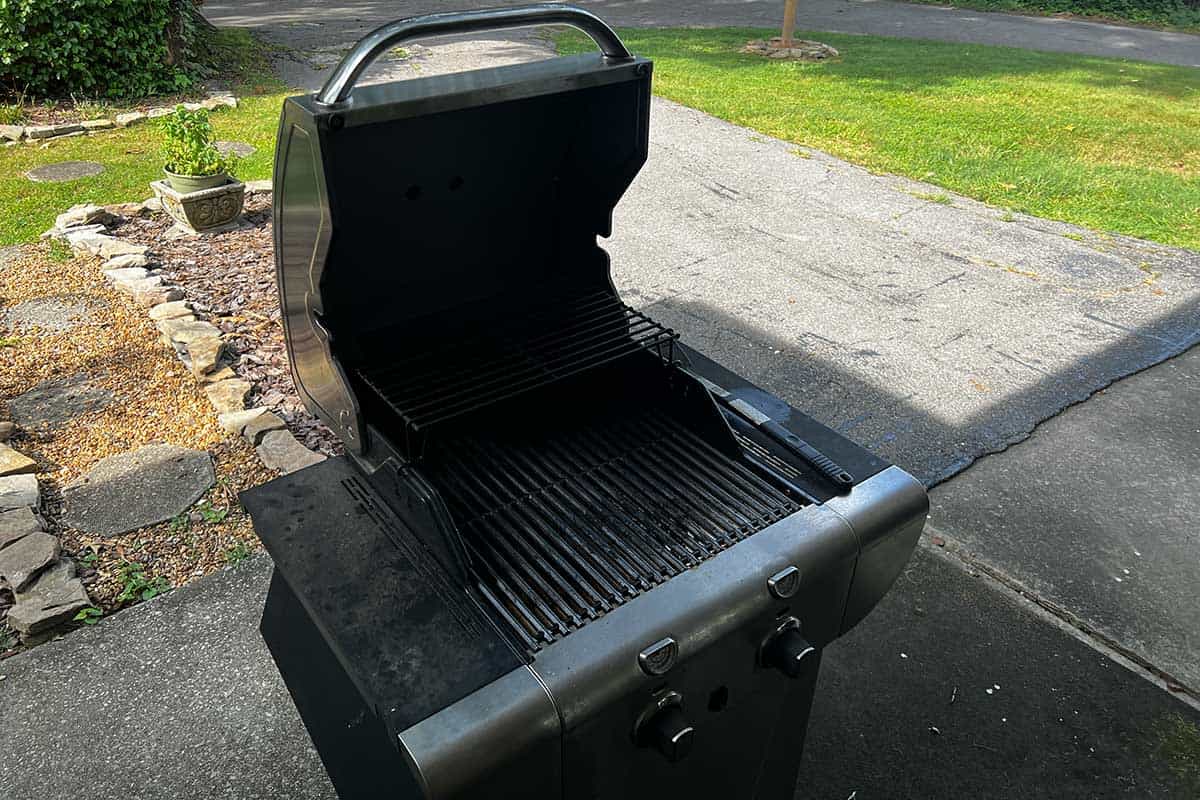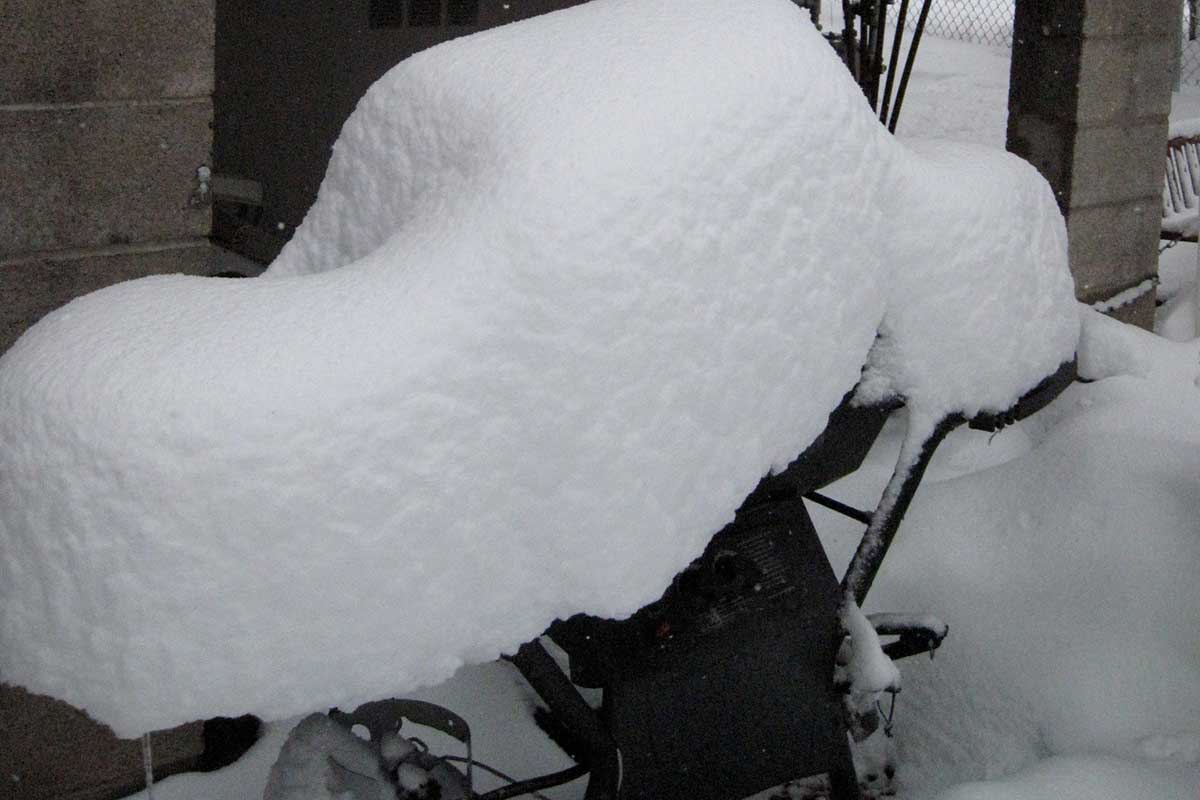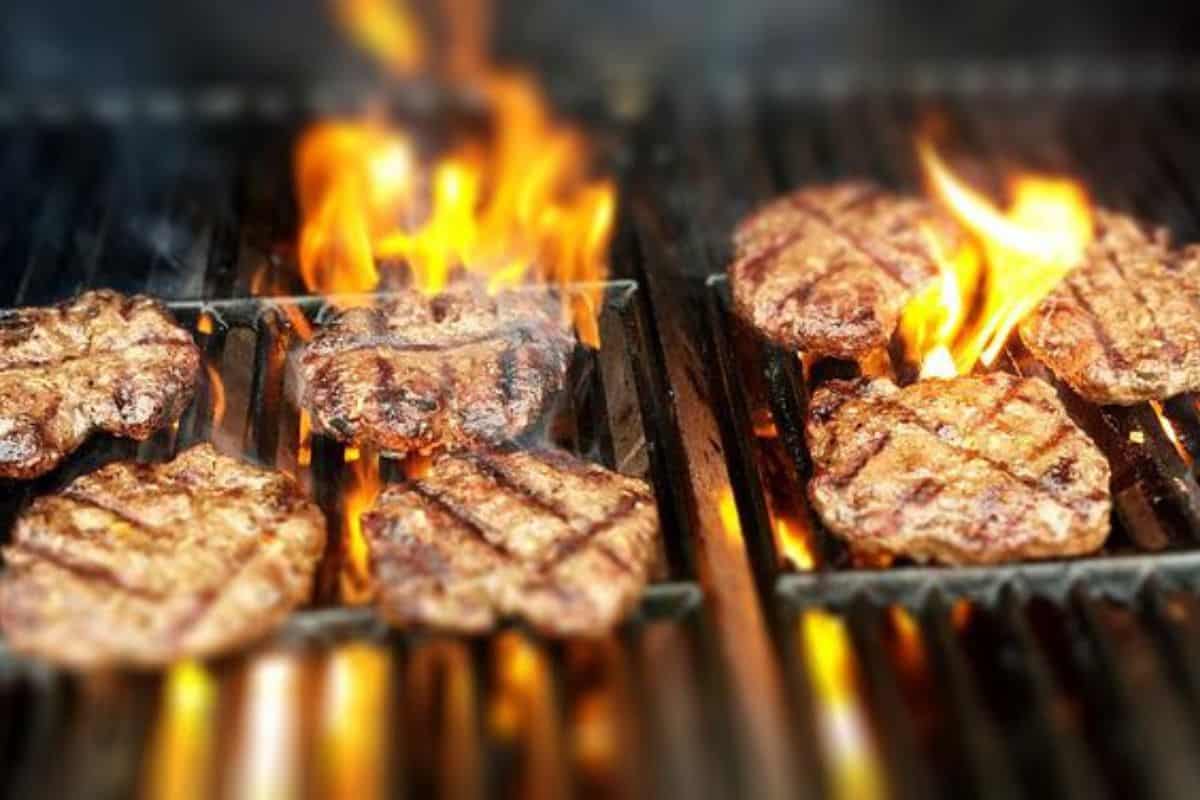This page may contain affiliate links. If you click and buy, we might get a small commission at no cost to you.
Taking out the gas grill in the middle of winter may not be everyone’s idea of fun, but for some cooking food on the barbecue in near-freezing temperatures is a small price to pay for the taste of superbly grilled steak or fish. That raises the question, will a gas grill work in cold weather? Will the freezing temperatures affect the propane? That’s exactly what we discuss in this article, so let’s find out!
Will A Gas Grill Work In Cold Weather?
A gas grill will work in cold weather, but there are a few aspects to consider. There are safety factors involved from a personal protection aspect and some advice on getting the most out of your grill as the lower temperatures will affect the gas grill’s performance.
Let’s discover some valuable tips for enhancing your gas grill’s effectiveness, as well as some helpful information to make your winter gas grill cooking experience that much warmer, easier and safer.
A fire pit and grill in one—perfect for backyard gatherings, camping, and bonfires!
SereneLife 2-in-1 Fire Pit & BBQ Grill
- ✔️ ️Enjoy a warm fire or grill up a feast—all in one portable fire pit
- ✔️ Includes mesh spark screen, log grate, fire poker, and grill top
- ✔️ Durable steel construction with heat-resistant coating
- ✔️ Quick 15-minute assembly
Ad
How Does Cold Weather Affect Propane?
Propane is a gas, and under summer or spring conditions, the gas in the cylinder is a vapor, and it comes out under pressure. This pressure gives the grill the ability to cook, but colder temperatures reduce this pressure in winter.
This is why you may be surprised to see the fuel gauge reading a lot lower in the winter than you remember leaving it. This is due to the icy temperatures causing the propane to condense inside the cylinder, reducing the pressure.
Inside the cylinder, propane is a liquid released as a gas through the valve. At low temperatures, propane will produce less vapor due to lower pressure, which will affect the grill’s ability to cook.
When outside temperatures drop to around very low, this will prevent the propane from releasing as a gas as the boiling point of propane is -44F. At this temperature, the gas would become a liquid, and cooking would be impossible.
Remember that until temperatures get to near freezing, your propane grill will be fine. Although you may see decreased pressure and excess fuel use, this won’t be as dramatic as sub-zero conditions.
The other consideration is that you will use more propane during winter due to the frigid air around the cooker. To ensure you can finish cooking, make sure your cylinders are full and you have at least two or three stored indoors to maintain the internal vapor pressure.
How You Can Reduce Your Gas Grill Fuel Consumption In Winter
If you are going to cook in winter, here are some tips to avoid using excessive fuel while cooking.
1. Use A Ceramic Container Or Pot To Transport Raw Food
Moving food between the house and grill should be done using a ceramic or another well-insulated container. You don’t want your food dropping temperature while waiting for the grill to heat up, and the same applies to cooked food. Get your food into the container quickly once cooked so it can retain heat.
Ensure the pot or container has an excellent tight-fitting lid so that no heat can leak out while taking your meal inside.
2. Cook Using A Windbreak For Protection
Standing in windy conditions in winter while cooking is not fun. Not for you, the grill, or the food! Try placing your grill using a windbreak, like a wall or outdoor location that offers some protection against the wind.
The wind will take heat away from the grill surface rapidly, and if you are exposed to it, you will spend much more time in the cold cooking food than usual.
3. Keep The Gas Grill Lid Closed As Much As You Can
Constantly opening and closing the lid while cooking will lead to excessive heat loss. This will cause you to use much more fuel and will make your cooking time much longer.
To plan your cooking, opt for food that you can cook with the lid closed most of the time, using your temperature probe to determine when it’s cooked through. The less you have to lift the lid to check the cooking progress, the better!
4. Before Cooking, Pre-Heat Your Grill
Warming the grill up before cooking in winter is essential. Doing this will warm up the grill’s interior, and the steel will hold some temperature before cooking. Not only that, but heating the grill before cooking also warm the air around it.
5. Use A Propane Tank Heater To Heat The Cylinder Before Use
There have been some creative and hazardous ways to try and heat the propane inside the tank to improve its performance during winter cooking. These included submersing the cylinder in water with a burner underneath, using hot water, using a BLOW-TORCH, space heater, and even hair dryers!
None of those methods are recommended as the risk of explosion due to sparks or open flames! An electric propane tank heater in the form of an electric blanket that works similar to the electric blanket on your bed is a much better option. One like this one on Amazon would do the trick.
These specially designed and safe products provide uniform heat across the whole cylinder surface and are all safety certified.
5 Ways To Revive Your Propane Grill If It Doesn’t Work

If you find that your propane grill isn’t working when trying to cook in winter, here are some steps you can take to troubleshoot the problem.
1. Your Tank May Have Expired
You need to check your tank expiry date periodically as, sadly, no tank lasts forever, and sometimes your tank has given up the ghost, and this is why your gas grill isn’t working. If it has expired, then you would need to replace it.
2. Warm Up The Tank
As discussed earlier, propane pressure and the vapor will drop in cold temperatures. If you don’t have a blanket, then bring your cylinder in for a few hours before cooking so it can reach room temperature.
This will rejuvenate the vapor and pressure and hopefully restore cooking functionality.
3. Check The Gas Lines And Warm Them If Necessary
Sometimes the gas lines can be the issue, so you need to check them and the valves to make sure that water has not entered and subsequently frozen, blocking gas flow to the grill and the ignitor.
After warming the gas lines, check thoroughly for frozen sections. Thaw them out safely, and then check the gas flow to the ignitor again if you do find any.
4. Check For Gas Leaks
A leak may cause low pressure in the line, and if you suspect there is one, NEVER try and ignite your grill. There could be a build-up of gas around the flame, and any attempt to light your grill could cause an explosion.
To check for a leak, use soapy water on the line and then look out for bubbles coming out. If there is a leak, replace the line or repair it if possible.
5. Your Regulator May Be Faulty
Even in warmer conditions, water, debris, or even insects on occasion can block the regulator. In the winter, water can enter and block it as well. Always keep a working spare so you can replace it if need be.
Be Prepared For Winter Grilling

Now that we’ve looked at the grilling side, let’s consider some tips for the cook to make grilling less stressful in the winter.
1. Dress For The Cold
Not only do you need to have suitable clothing, but make sure you don’t have any loose bits of material that could potentially get caught in the flame. Tuck all scarves in and wear heat-resistant gloves.
2. Create A Safe Work Area
Shovel a clear path from the house to the grill and sprinkle salt to keep it open. Prepare your food and grilling utensils before starting, and make sure that your cooking area has good lighting.
3. Cover Your Grill When Done
Once you are finished cooking, cover your grill correctly and turn the tank off. This will ensure that your grill is protected against the build-up of ice and snow.
Conclusion
Using your gas grill in winter can be just as much fun as in summer, provided you take a few extra precautions and make sure that your propane and your grill are in top condition.
After all, why should a little snow and ice prevent you from enjoying your favorite foods cooked on your favorite gas grill?




